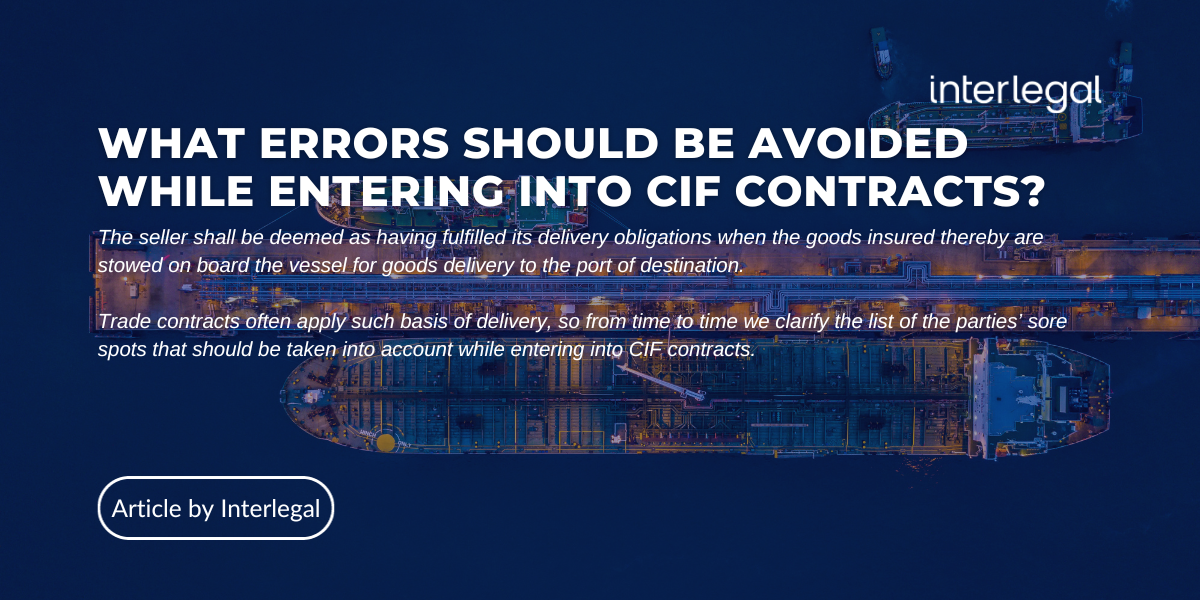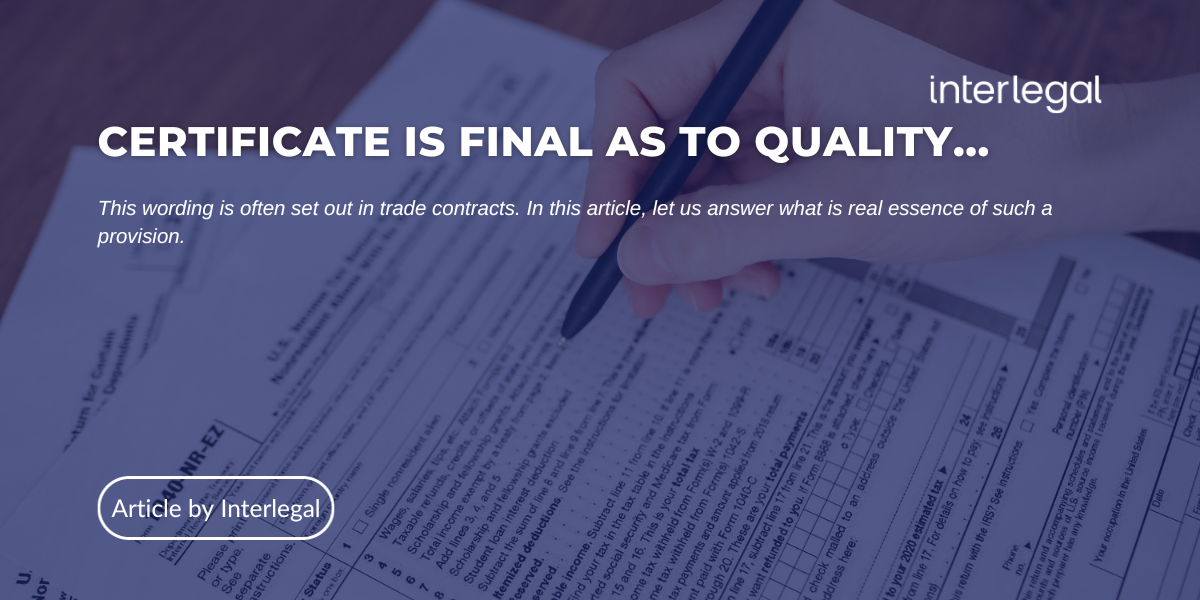The procedure and peculiarities of Director’s dismissal in Ukraine
20 August, 2008
2
As it is in many countries of the world, Ukrainian labour legislation protects the employee from being dismissed unfairly, and allows recourse in law.
In Ukraine the labour relations are regulated by the Labour Code of Ukraine (hereinafter referred to as the LC). The main purpose of the Ukrainian LC is to defend employee’s interests. All its rules protect the employee from the Owner’s discrimination.
According to the LC the Owner appoints the Executive Body (the Director) of the company. In Ukraine the appointment as well as the dismissal of the company’s Director is under Owner’s authority. However, in any case, the Owner can dismiss the Director only according to the procedure stipulated by the Ukrainian Labour Law.
According to the LC, the Director is a waged employee having the same scope of rights and guarantees like any other waged employee of the company, except additional grounds for dismissal given below. The list of reasons to dismiss the employee by the Owner’s initiative is stated in Articles 40 and 41 of the LC:
“Article 40. The termination of employment agreement by the initiative of the Owner or body authorized by him.
The employment agreement concluded for the uncertain term, together with the terminal employment agreement by the end of its term, can be terminated by the owner or by the body authorized by him, only in the following cases:
1) changes in organization of production and labour, including liquidation, reorganization, bankruptcy or type modification of the enterprise, institution, organization, reduction of staff quantity or number of staff positions;
2) discovered inadequacy of the employee to taken post or to the kind of work he is doing due to insufficient qualification or state of health, which do not allow to continue this work, and also in case admission to the state secret is cancelled, if the execution of obligations put on him demands admission to the state secret;
3) regular non-execution of the employee, without any reasonable excuses, of his obligations provided by the employment agreement or internal labour regulations, if the employee has earlier incurred disciplinary or public penalties;
4) truancy (including absence from work more than 3 hours during working day) without reasonable excuses;
5) absence from work during more than 4 months running as a result of temporary invalidity, except maternity leave, if the law does not provide longer term for the working post reservation in case of some disease. The post is reserved for employees who lost their working ability as a result of severe injury got at work or professional disease, till recuperation of their working ability or their disablement is confirmed;
6) restoration on work of the employee who has done this job before;
7) if the employee has come at work drunk, in the state of alcoholic or narcotic (drug) intoxication;
8) if the employee committed steal (including minor steal) of the Owner’s property at the place of work, and this fact was determined by the Court decision entered into legal force, or by the resolution of the body authorized to impose administrative penalty or to take measures of public pressure.
Dismissal by the reasons mentioned in item 1, 2 and 6 of this article is allowed if it is impossible to transfer the employee to another place of work by his consent.
It is not allowed to dismiss the employee by the initiative of the Owner or the body authorized by him within the period of his temporary disability (except the dismissal according to item 5 of this article), and also within the period of his stay on holidays. This rule does not include the case of full liquidation of the enterprise, institute, organization.
Article 41. Additional grounds for termination of employment agreement, by the initiative of the Owner or the body authorized by him, concluded with some categories of employees under the certain conditions.
Except the reasons provided by the Article 40 of this Code, the employment agreement can be terminated by the initiative of the Owner or the body authorized by him also in cases:
1) single gross (serious) violation of working duties by the Director of the company, institute, organization of any kind of ownership (branch, representative office, department and other separated subdivision), by his deputies, by chief accountant of the company, institute, organization of any kind of ownership, by his deputies, and also by Customs, State Tax inspection officials having personal rank, and also State Control Revision inspection officials, and State Price Control Body officials;
1 – 1) guilty actions of the Director of the company, institute, organization, due to which the salary was paid not in time or in quantity less than the minimum salary established by law;
2) guilty actions of the employee which directly deals with the currency or commodity values, if such actions give the grounds to loose trust to him from the side of the Owner or the body authorized by him;
3) committing by the employee who carries out pedagogic functions the immoral action which is not compatible with the his further work.”
Therefore, special additional grounds for the dismissal of the Director are the reasons provided by items 1 and 1-1 of Article 41 of LC. There are single gross violation and guilty actions of improper payment of salary.
At the same time, the law does not give the full answer what Director’s violation to be considered as the gross one. This definition is personally evaluating, and the point of view on it is individual. In each such case considered in the Court (for example, about the restoration on work), the Court investigates and estimates the kind of violation taking into account all the circumstances of the case.
Besides, item 8 of Article 36 of the LC provides for one more ground of the Director’s dismissal: “reasons indicated in the employment contract”. This means that the LC directly provides for the possibility to indicate in the employment contract additional grounds for dismissal (besides those mentioned above in Articles 40, 41).
According to Ukrainian legislation the appliance of the employment contract is limited, i.e. the employment contract can not be concluded with every kind of an employee.
As regards the Director of the company, Ukrainian law directly provides for the possibility to conclude such contract with him. Thus, part 4 of Article 65 of the Commercial Code of Ukraine stipulates that when hiring the Director of the company the employment agreement (contract) is concluded with him. Terms of hiring, rights, duties and responsibility of the Director, conditions of his financial provision and his dismissal as well as other points of his employment should be determined by this contract by the agreement of the parties.
Let’s suppose there is a fact of violation, and the Owner decides to dismiss the Director insisting that this violation is gross (serious). In such case the Owner should be ready that the fired Director will contest the dismissal in the Court. Estimating the Owner’s prospects in the Court, the nature and circumstances of violations committed by the Director should be taken into account. It is rather problematic to foresee which side the Court will take in every case. Anyhow the Owner must remember that the Ukrainian labour law is built up with the purpose to protect an employee, but not the Owner.
Some aspects of Director’s dismissal which occur in practice should be also considered. First of all, these are counter-measures from the Director’s side. They can be civilized methods of struggle (restoration on work in the Court), as well as sabotage of Owner’s actions and the work of the company in general.
Often in practice, the unfair director having not agreed with the dismissal seizes (steals) the official stamp and original documents of the company making in that way the work of the company and appointment of new director very difficult and even impossible.
Other point is when the unfair director having the right to dispose of the company’s funds uses them in his struggle against the Owner (for example, pays for the services of lawyers, consultants etc.).
Sometimes the unfair director employs the method of “Corporate blackmail” involving into the conflict the clients and partners of the company whom director has got relations when executing his duties and representing the company.
Sometimes, the Director applies to mass media in order to spread the information about “injustice and discrimination” from the Owner’s side.
There is a possibility to end and even to avoid all this struggle between the Owner and the Director using such instrument as the removal of the Director. This rule is rather new and is provided by the article 99 of the Civil Code of Ukraine: “the members of the Executive Body can be removed from the execution of their obligations any time, if the statutory documents do not define specific reasons of Executive Body members’ removal from execution of their obligations.” Therefore, by the Owner’s decision, the Director can be removed any moment. The removal is not a dismissal. The Director is removed from actual execution of his functions. In this case the labour relations with Director are going on, he receives the salary. This measure can be used as extraordinary one in order to close for Director the access to company’s funds and documents. Meantime, the question of dismissal and the reasons for it remains unsolved and should be decided.
Rather frequent is the situation when the Director has been the head of the company for many years and started thinking that this company is successful in specific local market only due to his efforts. Often in such cases it is not just a job for Director, but the business of all his life. Thus the dismissal (moreover because of gross violation) can be treated as personal offence.
In this matter there is a lot of reasons to expect the opposition from the Director’s side. The Director has in his hands all the instruments of company’s management both official and informal, including relations with the staff, clients, officials of local and state authorities and management. In case of any conflict, the dismissed Director can prevent the transfer of such instruments to the new director, which fact can dramatically damage the activity and reputation of the company.
It is very important that the Statute and employment contract with each director regulate the powers of all the Executive Body members in details. Any changes in Executive Body structure should be inserted into the Statute and according to Ukrainian law require state registration. Procedure of Statute amendment will take some time. As per legislation, this term must not exceed five workings days, but in practice can be longer.
This Article marks only some directions and instruments of influence on the undesirable director. In practice, events can go on like chess game, when, depending on the rival move, one should change his tactics to take appropriate and best steps.
























































